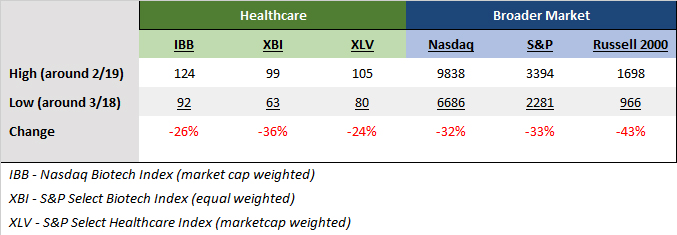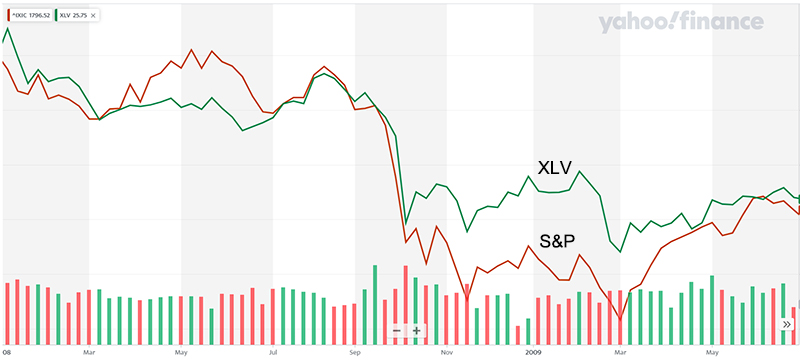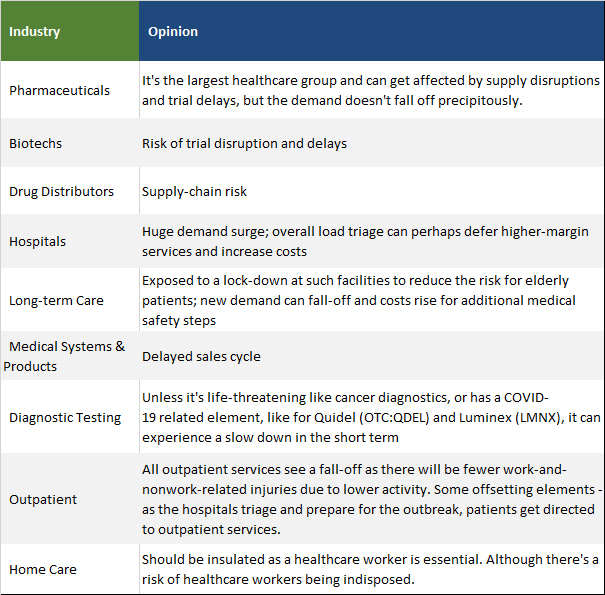The month of June is expected to be an eventful month for biotechs and healthcare, potentially providing a catalyst for either a powerful breakout or more consolidation when it comes to biotechs.
Supreme Court to Rule on Affordable Care Act

The Affordable Care Act or Obamacare makes at least its seventh appearance for a Supreme Court verdict when the nation's top court issues a decision that can come any day now. The oral arguments in November last year suggested that the court may use this case to deliver a once and for all judgment on the constitutionality of the ACA. The state of Texas, which brought the lawsuit that was joined by 17 other Republican states, saw the Federal government withdraw from being a supportive party to the lawsuit after a change of administration.
The issue resides on whether the individual mandate, also called tax penalty, for not buying health insurance can be zero and still be considered a tax; and if it is not considered a tax thus making the individual mandate unconstitutional, then can the rest of the law still stand.
If the Supreme Court confirms the constitutionality of ACA, it may well prove to be the final blow to recurring challenges to the law. On the other hand, a determination that the ACA is unconstitutional will be a highly disruptive event with the potential to create waves of volatility in healthcare stocks and even into the broader market. The market does not anticipate such a move as healthcare valuations have been expanding last month, though they may begin to ease this month till a decision is announced.
Upcoming Decision On An Intensely Watched
Alzheimer's Treatment

There has not been as controversial a drug and as important an FDA decision in recent memory as Aducanumab, Biogen's (BIIB) drug for Alzheimer's disease.
There are nearly 6 million people in the US affected by Alzheimer's, a fatal and progressive neurodegenerative brain disease that eventually deprives individuals of memory, speech, cognition, and movement. There is no compelling disease-modifying treatment that exists presently.
When Biogen began its trial studies, it set up two late-stage, identically designed, Phase 3 clinical trials, Engage and Emerge, for Aducanumab versus a placebo. The FDA allowed Biogen to not go through the Phase 2 trial, which is used to determine the optimal dosages for the right balance of benefit and risk. In an interim futility analysis in March 2019, it was determined that the drug was not effective, supporting the termination of clinical studies. Biogen announced that on March 21, 2019. Seven months later in October 2019, Biogen announced that Aducanumab works. Analysis of additional data that came in showed that in the Emerge study, patients who received a higher dosage showed a smaller decline in cognition and function compared to the placebo outcome. The identically designed Engage study showed no such benefit at high and low doses. In both trials, Aducanumab removed amyloid plaque effectively at all doses. However, the link between removing the plaque and improvement in cognition and function measures is tenuous and unproven.
The limited evidence from the first trial and the failure of the second trial has created a storm of conflicting opinions. Any approval for Aducanumab would be a significant burden on the healthcare system on a treatment priced at $20,000 to $50,000 per year. It would be justified if the data were clear and convincing. But that is not the case here. Consequently, leading voices from the medical community and institutions have not supported approval, while some patient groups for the drug have been supportive. At the Advisory Committee (AdComm) meeting, 10 of the 11 members voted against considering the research presented as being reasonable primary evidence of effectiveness for Aducanumab as a treatment of Alzheimer’s disease, while the 11th member was uncertain. The Institute for Clinical and Economic Review (ICER) noted:
"...we judge that the evidence is insufficient to conclude that the clinical benefits of aducanumab outweigh its harms or, indeed, that it reduces progression of AD. If blended efficacy results are used from the Phase III trials, our base-case analyses suggest that an annual cost of $50,000 for aducanumab, as has been suggested by market analysts, would not be in alignment with its clinical benefits".
With this backdrop, there is a lot riding on FDA's decision this week.
What does Aducanumab Decision
Mean for Biotech Stocks?

An approval would be generally favorable for biotechs as it will drive industry sales higher and result in additional healthcare services.
The unproven amyloid cascade theory, which hypothesizes that removing amyloid will reduce the effects of Alzheimer's disease, will get a new lease of life from a favorable FDA disposition. A precedent would be set that clearing amyloid plaque with an unclear association in improvements on the cognitive and other measures on the scale may prove to be sufficient to tease out an FDA approval.
The neurodegenerative investigational treatments as a group will receive a boost from Aducanumab's approval, as it would indicate a lower bar for receiving drug approval in debilitating neurodegenerative diseases with no therapies.
In case Aducanumab is rejected by the FDA, it would likely mark the end of the amyloid cascade theory. It would provide a significant boost to newer approaches to treating diseases like Parkinson's and Alzheimer's. The valuation for such a pool of assets will climb.
We believe small and midcap companies with promising approaches in the central nervous system diseases will do well in both cases - an approval or a decline for Aducanumab. We discussed 3 companies, Cassava, Prothena, and Anavex, in a recent article on Neurology Stocks Pursuing Alzheimer's.
A few such small and midcap companies targeting neurodegenerative diseases include Denali Therapeutics (DNLI), Neurocrine Biosciences (NBIX), Sage Therapeutics (SAGE), Arvinas (ARVN), Avadel Pharmaceuticals (AVDL), Supernus Pharmaceuticals (SUPN), InMune Bio (INMB), Cortexyme (CRTX), Abeona Therapeutics (ABEO), Alector (ALEC), Minerva Neurosciences (NERV), Biohaven Pharmaceutical (BHVN), Intra-Cellular Therapies (ITCI), Karuna Therapeutics (KRTX), Cassava Sciences (SAVA), Anavex Life Sciences (AVXL), Prothena (PRTA), and Annovis Bio (ANVS), to name a few.
It is always prudent to have a mix of promising companies with different approaches in the biotech space.
The ASCO Conference

This is the largest oncology annual conference in the US and is scheduled for later this week from June 4 to 8. Numerous abstracts and new data are released during the conference, which generally has a favorable impact on biotechs. Deals and partnerships are also quite often announced during the conference when the attention of the oncology world is fixated on ASCO.
Biotechs can use a catalyst to emerge from an over 3-month long consolidation. There is nothing like a major acquisition to spark an industry group. Oncology represents the largest segment of biotech companies, and with new data releases and potential deals at the conference, perhaps ASCO can provide the much-needed jolt to boost biotechs in June.
Healthcare Exposure
The investing argument for healthcare is clear. Healthcare spending in the US is projected to be $4 trillion in 2021, almost one-fifth of GDP. It is expected to grow by a trillion dollars over the next 5 years. The importance of healthcare during the pandemic and the aging US demographic reinforces the pivotal position occupied by healthcare in the US economy.
There are significant regulatory risks and unrelenting pressure on reducing healthcare costs, which remains the number one public interest issue. That won’t change and will keep contributing to volatility. Furthermore, there is the risk of the Supreme Court striking down the entire Affordable Care Act in its decision in June.
Even with some of these risks, the healthcare spending trend is pointed only in one direction — higher. Healthcare remains a promising investment area. It has industry groups that have the potential to materially outperform the broader market.
The largest healthcare industry group, by the number of companies, is biotechnology. The two largest segments in biotechnology are Oncology and then Neurology, which will both be highly active over the next 10 days on market-moving news.
We believe healthcare remains an exciting and rewarding investing area. It is prudent for investors to maintain a steady exposure to healthcare over the longer term.
The article was first published on Seeking Alpha.


